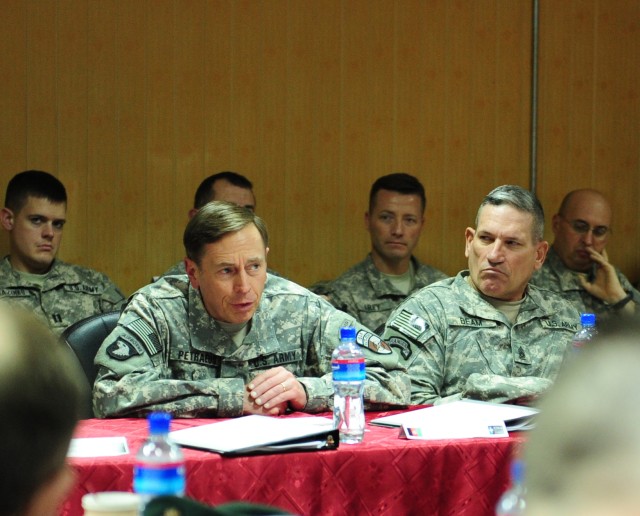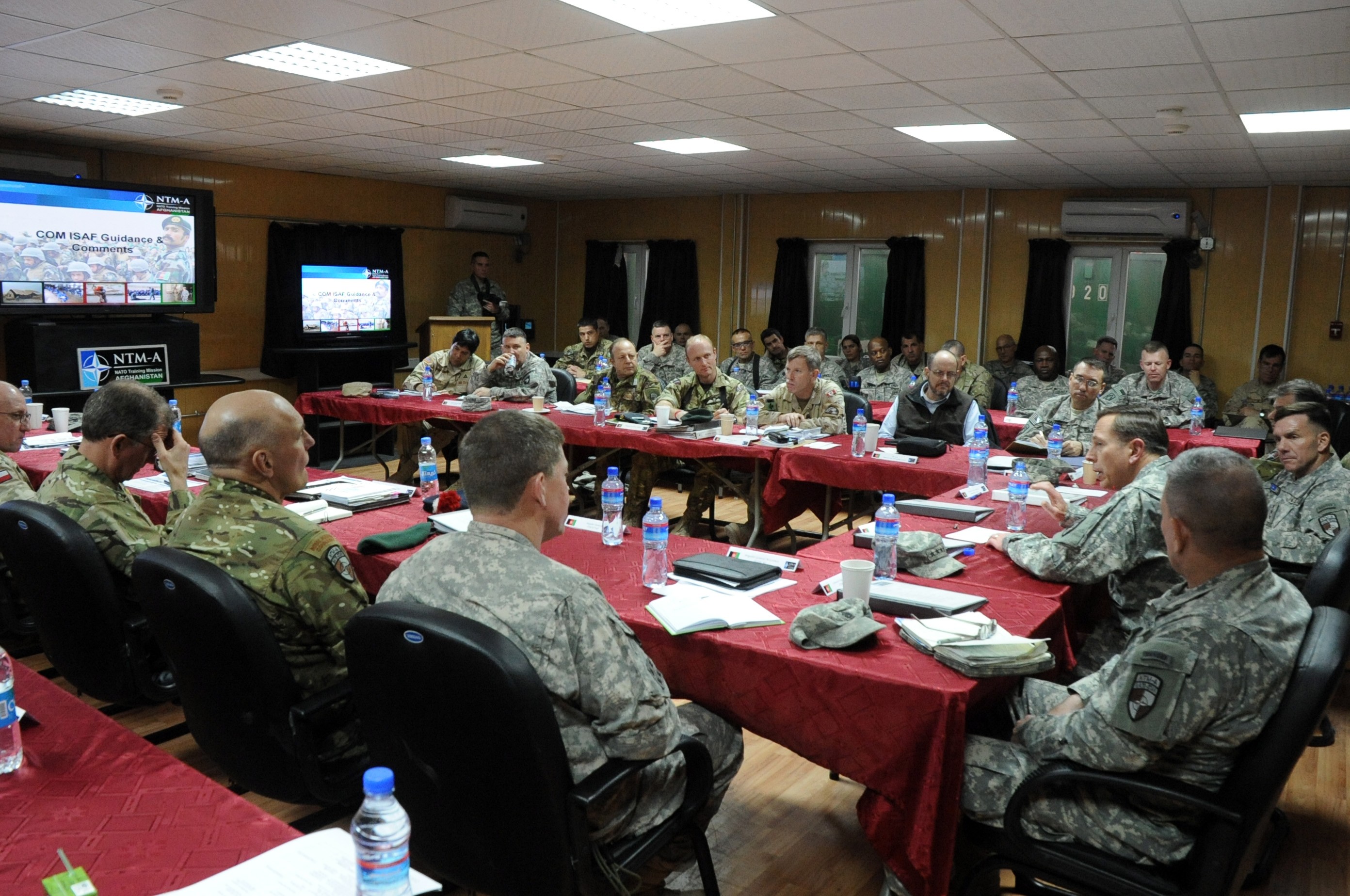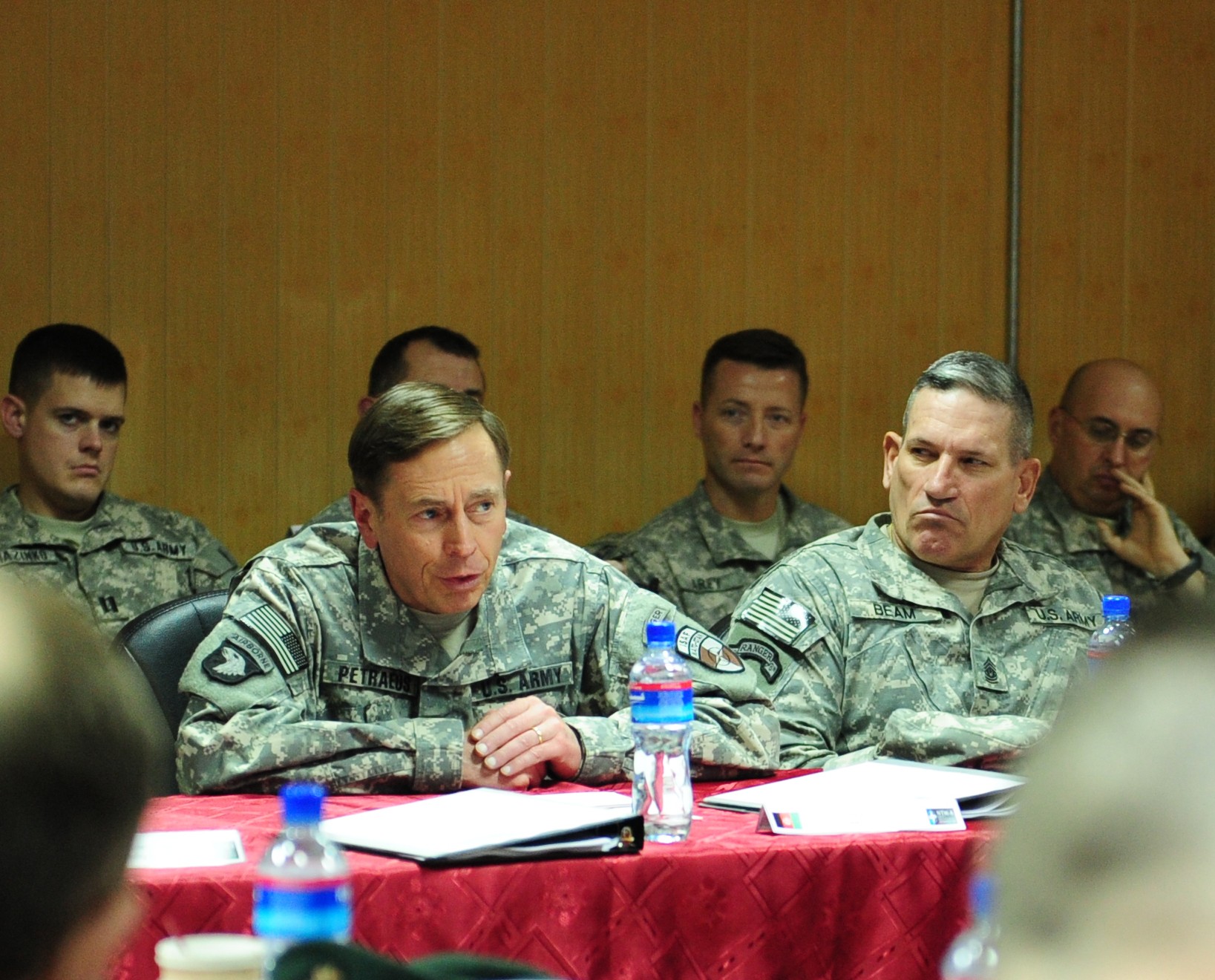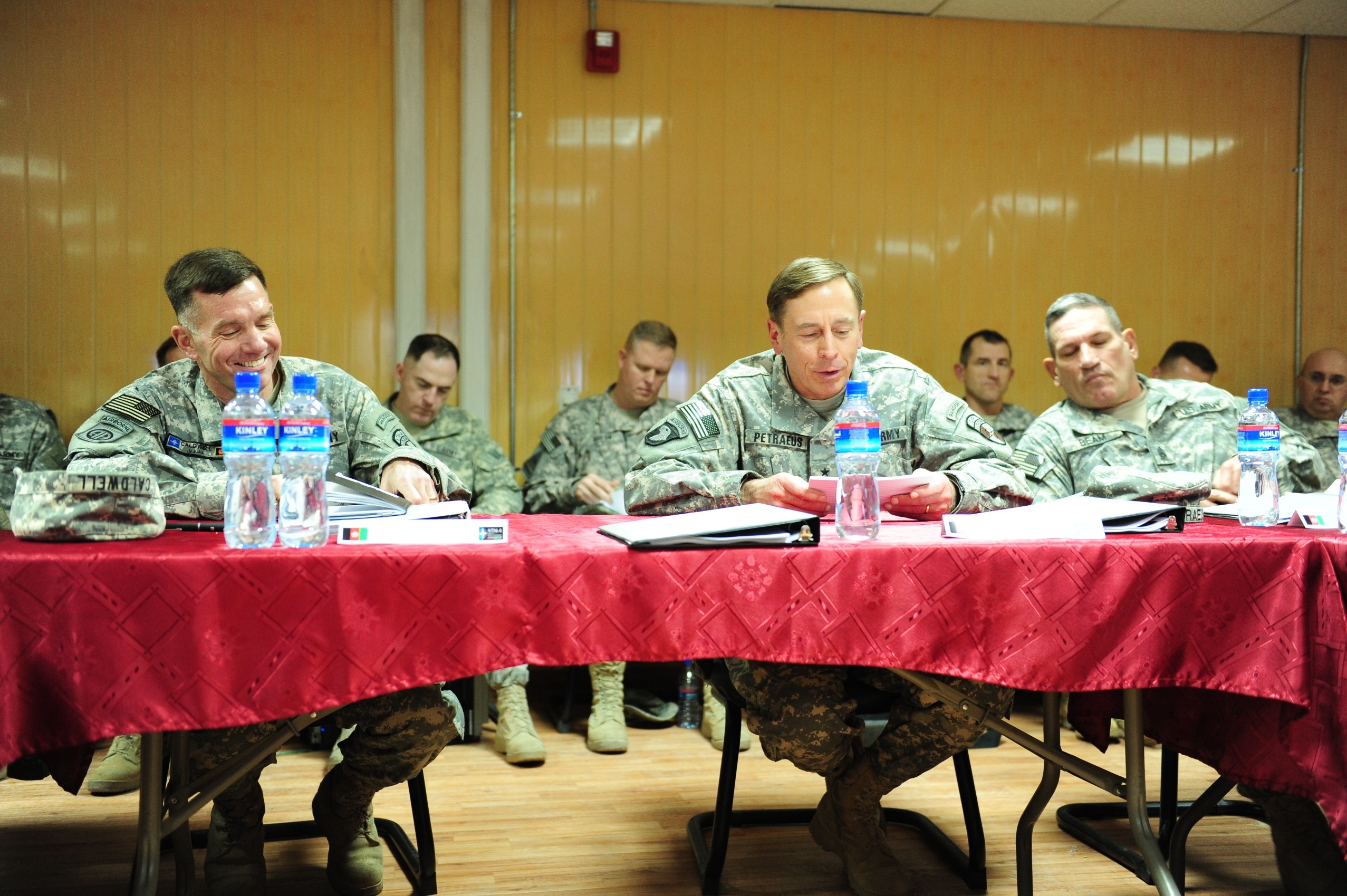KABUL, Afghanistan, Feb. 3, 2011 -- The top coalition commander in Afghanistan presented a candid assessment on the topic of transition in Afghanistan to about 60-plus coalition leaders attending the Regional Support Commanders Conference at Camp Eggers, home to the NATO Training Mission-Afghanistan/Combined Security Transition Command - Afghanistan.
Following a 30-minute presentation by Gen. David H. Petraeus, commanding general of International Security Assistance Force, known as ISAF, and U.S. Forces Afghanistan, Lt. Gen. William B. Caldwell IV addressed conference leaders, giving his assessment of the challenges for the next nine months.
"It's great to have made it here," Petraeus said. "This is a very important endeavor."
The conference was hosted by Brig. Gen. John J. McGuiness, deputy commander for Regional Support, NTM-A and CSTC-A. DCOM-RS is comprised of six Regional Support Commands throughout Afghanistan. The RSCs serve to facilitate contracting, training, and construction to support the Afghan National Security Forces in Afghanistan.
The NTM-A/CSTC-A/RSC mission was analogized by the four-star general as designing and building the world's largest aircraft while in flight, while being shot at.
"You dreamed this up, designed it, and made it happen," he said to Caldwell, referring to the DCOM missions.
"The complexity is enormous," Petraeus said, adding that leaders must wear many hats, working with different nations' forces, and meshing everything to achieve success.
He went on to say that great strides and achievements have been made since 2009 when the situation was "serious and deteriorating." But now, the insurgency "has been arrested in much of the country."
While the surge of 30,000 U.S. troops played a significant role in this, the "biggest surge was the 70,000-plus increase in Afghan forces you have been supporting," Petraeus said, citing success stories in the Helmand, Kandahar and Kunduz provinces, as well as the greater Kabul area, the nation's capital, where 20 percent of Afghanistan's population lives.
"These are significant accomplishments," he said of the provinces, adding that Afghan forces are in the lead in the Kabul area.
Petreaus said that 2010 was by and large a successful year. "We have achieved what we set out to achieve in 2010" which was to reverse the insurgency momentum, solidify accomplishments, and build on successes. "We took away safe havens and the infrastructure that goes with it."
This meant taking away their improvised explosive device production facilities, command and control, rudimentary medical facilities, and popular support from the populace in those areas.
Looking ahead, Petraeus said that the enemy will adapt, no matter how barbaric and brutal the tactics may be.
"The enemy is going to go after Afghan leaders more than ever before," he predicted, as well as damaging new developments in infrastructure, which will produce a backlash from the Afghan people as it did in Iraq, he said.
"But that is what the enemy does when he is desperate," Petraeus said.
Political challenges remain in Afghanistan and he said President Hamid Karzai is willing to address them because he recognizes the damage they can do.
Petraeus urged leaders to continue to look for opportunities based on the resources they are given, explaining no commander has ever had everything at his disposal.
By summer, Petraeus said he believes that some responsible drawdown of U.S. forces will begin as previously announced, based on conditions on the ground.
"I think that will be doable," he said. "You all play a crucial role as this moves forward."
Before departing Petraeus reminded everyone in the coalition that they play a key role in Afghanistan's success.
"Don't ever question the importance of what we're doing," he said, and keep reminding yourself how important this mission is. "We all have to do that."
After Petraeus left, Caldwell told conference attendees the three "A's" that he foresees as being the main focus this year.
They are attrition, accountability and Afghans out in front.
The attrition rate amongst the Afghan National Security Force is too high, which won't allow for planned growth. He added that 98 percent of the attrition rate now comes after the Afghan recruits have arrived at their assigned unit, not during their training.
Caldwell cited this as not only a major challenge for the Afghans to attain their growth goals, but also said it was directly tied to leadership.
"We need to help them get more leaders officers, noncommissioned officers," he said. He added there's a need to institute a "professionalization of the force," explaining ANSF must reduce corruption and instill a philosophy to "serve, not be served."
Regarding accountability, Caldwell said this falls under the umbrella of stewardship.
Caldwell said he sees teaching and training the Afghans to account for equipment such as vehicles, radios and weapons, as being crucial to their ability to become an enduring and self-sustaining force.
On the third "A," Caldwell said 2011 is a pivotal year. "This is the year we want to ensure the Afghans are out in front." He reinforced the importance of helping the Afghan leaders be more open to speaking with the press corps, especially the Afghan press. "We must help them understand the importance of sharing their story with their media to their people."
Caldwell said coalition forces won't pull out, but rather thin out to allow Afghans to take the lead in police and military missions.
Related Links:
STAND-TO!: NATO Training Mission-Afghanistan: One Year Anniversary










Social Sharing